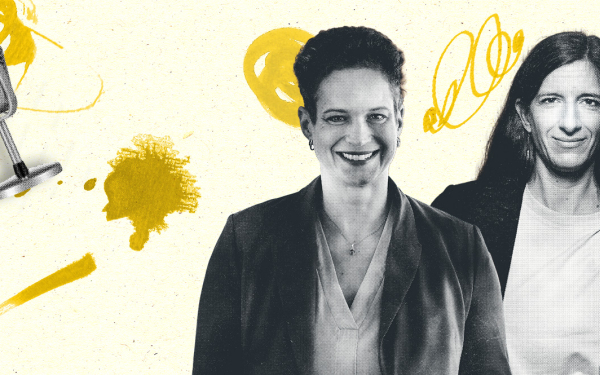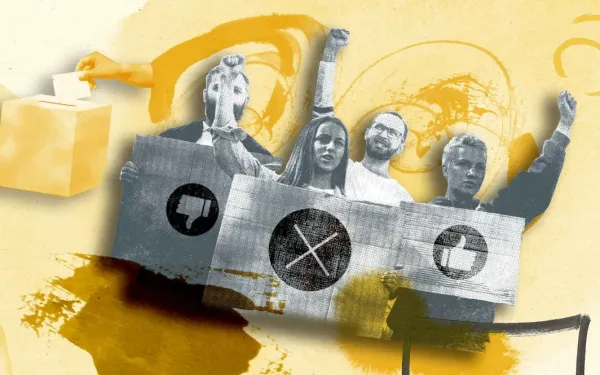What fascinates young people about the far right?
#Democracy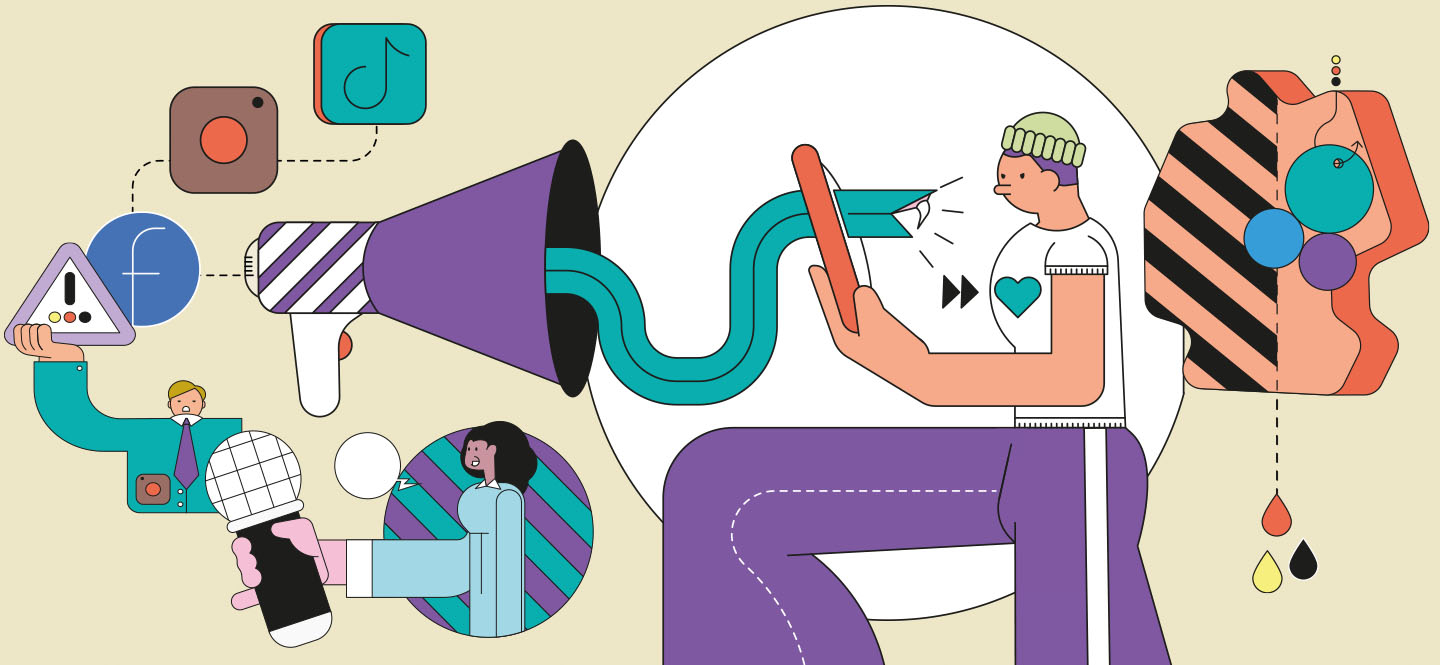
Tobias Wandres/VolkswagenStiftung
Hostility towards democracy is on the rise in Germany. Yet politicians and academics pay little attention to the attitudes of a particularly important group: young voters. An interdisciplinary project in eastern Germany is determined to change that.
Sometimes, the distance between Trier and Dresden is no longer than the length of a thumb. Eva Walther holds it up. 'Cathleen, the figures from the second wave have arrived today,' says the professor of social psychology at the Trier University into her computer camera. 'Great, I'm excited,' says Cathleen Bochmann on the call. 'Let's see if some of our predictions come true.'
Bochmann, who has a doctorate in political science, works for Aktion Zivilcourage, an association dedicated to strengthening democratic culture in Saxony. She sensed something months ago, and now she wants to get to the bottom of it with the help of scientific expertise: 'Where does this anger we're seeing come from?' she asks.

'You might see something in the figures that we don't,' a third woman joins the conference call. Anna-Sophie Heinze, also a political scientist with a doctorate, works at the University of Trier, like Walther. The three have joined forces to investigate an under-researched topic: Where does the growing influence of far-right parties on young voters and first-time voters in eastern Germany come from, and how does it work? Since April 2024, this trio of academics and practitioners has been exploring attitudes towards democracy and how these can be strengthened in a transdisciplinary approach – funded for one year by the Volkswagen Foundation as part of the initiative 'Transformational Knowledge about Democracies in Transition – Transdisciplinary Perspectives'. The title of the project: "Nurturing Democratic Resilience among Youth to Counter Far-Right Influence in the Eastern German Elections 2024 (NurtureDEMOS)."
'The topic cried out for us to work together,' says Heinze. Because it fills several gaps at once.
Shedding light on a blind spot
On the one hand, there is the many years of experience of the employees at Aktion Zivilcourage, some of whom have been doing grassroots work since the 1990s and are now noticing a growing trend in which racism and anti-democratic sentiments are being expressed with a new self-confidence. 'A different cultural hegemony is being established,' says Bochmann.
'And it's actually crazy that so little research is being done on youth and politics,' says Heinze. Walther adds: 'The psychological factors influencing young people's voting behaviour are similarly under-researched. To explore this, we need both social psychology and political science,' both in constant dialogue with Aktion Zivilcourage from civil society.
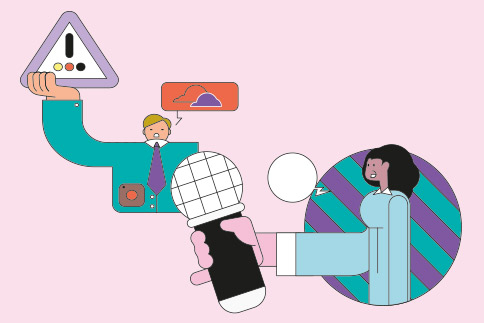
So since last spring, the three have been contributing their respective expertise to the project. Heinze is examining the parties' offerings for young people, their programmes and organisations – to this end, she conducted a series of interviews with young party officials. Walther, on the other hand, is researching the demand side with two informative surveys in which around 1,850 people expressed their views before and after the state elections in Brandenburg, Saxony and Thuringia. 'Now we will start evaluating the second wave after the elections,' Walther announces. In addition, the three are organising 'round table formats' where various actors from politics, academia and civil society come together to discuss issues. The planned output: several academic articles in both disciplines, as well as concise policy papers for interested parties for quick briefing.
The first project results are available in the study 'Democracy in danger? Election study in eastern German states reveals mistrust in the state' (in German only) (link to the study (in German) for download: https://www.komrex.uni-jena.de/komrexmedia/5280/policy-paper.pdf).
Aktion Zivilcourage is incorporating this information into its workshops, in which young people spent last summer intensively examining party programmes. The aim is to create a kind of toolkit that young people can use locally to explore their self-efficacy, try out political participation, and thus become better equipped to recognise populism while cultivating a positive relationship with democracy. Hence the project's focus on the local level and civil society. Bochmann: 'So that young people who want to get involved don't see themselves as having no opportunities.'
Some corrections are needed
And what are the findings, what helps against the 'right wing'? Heinze laughs. 'That's the million-dollar question, of course,' she says modestly. And Walther: 'We're still working on it.' But there are initial results: 'It's striking that political structures such as parties and institutions are not very geared towards the needs of young people,' says Bochmann, who had long expected the AfD to do well in the elections. In addition, Walther says, the AfD is by far the best positioned of all parties on information sources important to young people, such as TikTok and Instagram. 'With its reduction of complexity, the party also has a locational advantage on social media. That's because problems are stirred up and scandalised there.'
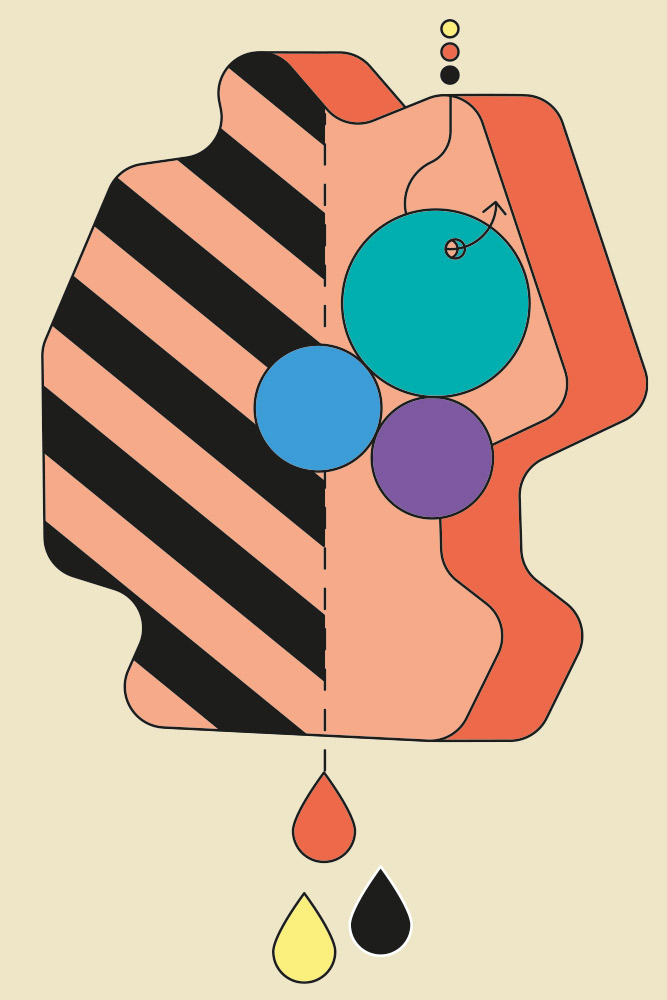
The preliminary findings of the project also dispel some preconceptions. 'Young people are neither right-wing nor TikTok,' says Heinze. 'They are more politicised than previous generations and display quite volatile, fragmented voting behaviour, which also benefits small parties.' And young people are quite pragmatic, Bochmann adds, saying that issues such as inflation, the economy, pensions, climate change and war are very important to them. 'They are not different beings.' Walther continues, saying that the first survey showed that a vote for the AfD tends to be less of a protest vote or a vote to teach the establishment a lesson. 'This rumour is not reflected in our figures at all.' This is because, compared to other parties, the AfD has the highest correlation between voter sympathies and voting behaviour. In other words, 'AfD voters are very dissatisfied with politics and the political system. But they are very satisfied with the AfD.' She uses this to describe the emergence of a people's party.
The three perceive a contradiction: although they are often asked by the media about the AfD's successes and the political behaviour of young people, there is still room for improvement in terms of the importance attached to this issue, says Heinze, 'in academia, politics and civil society alike.'
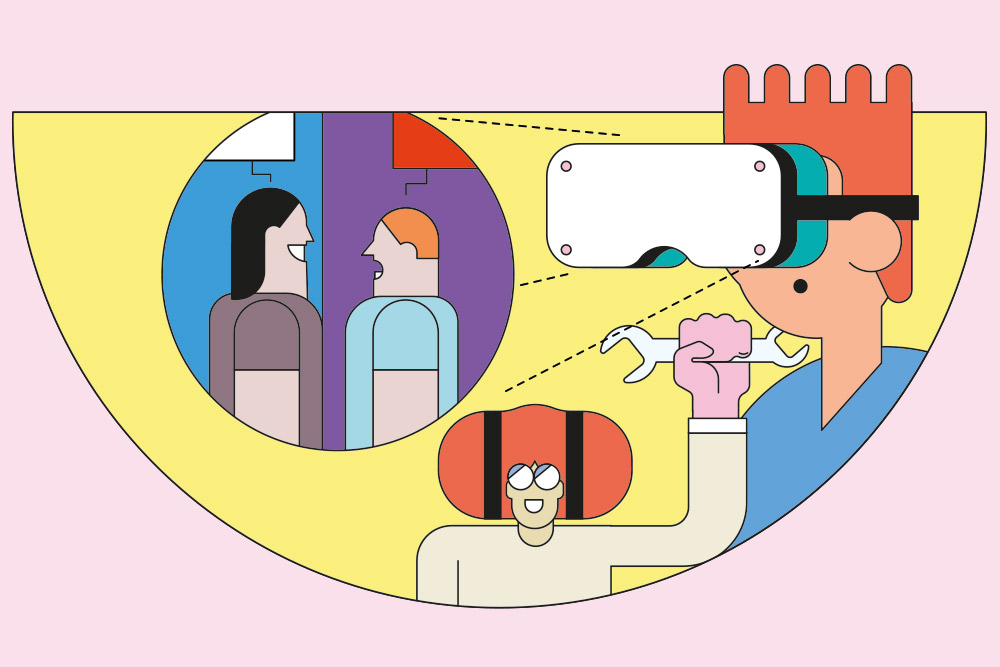
The country needs new approaches
And so, until spring 2025, the three will continue to work on new ways to promote democratic resilience, in addition to developing their findings. 'The offerings must be local and tailored,' says Bochmann. 'They should be tailored to local needs.' Currently, Aktion Zivilcourage is experimenting with VR glasses as tools for political education – anything to reach and engage young people. 'Each of us brings our own pieces of the puzzle to the table,' she says. In the end, a mosaic picture will emerge that can help. 'Young people are not just the voters of tomorrow,' concludes Heinze. 'They have a decisive say in the answer to an important question: Is the far right now becoming normal in Germany?'

